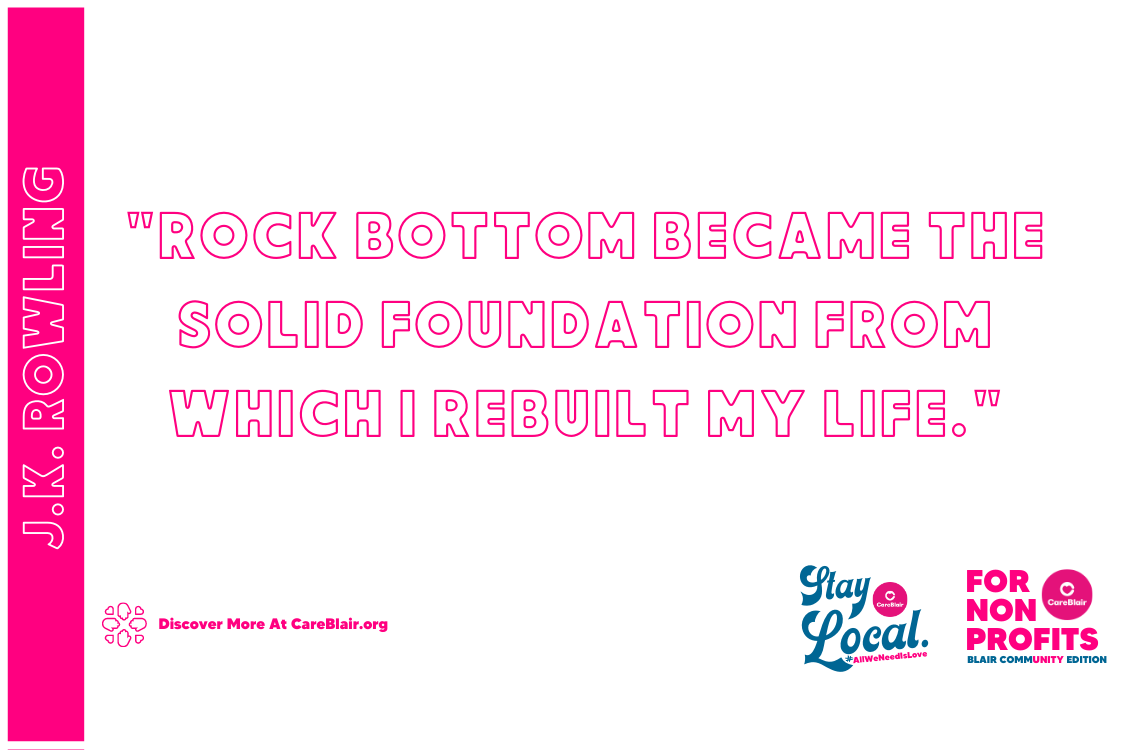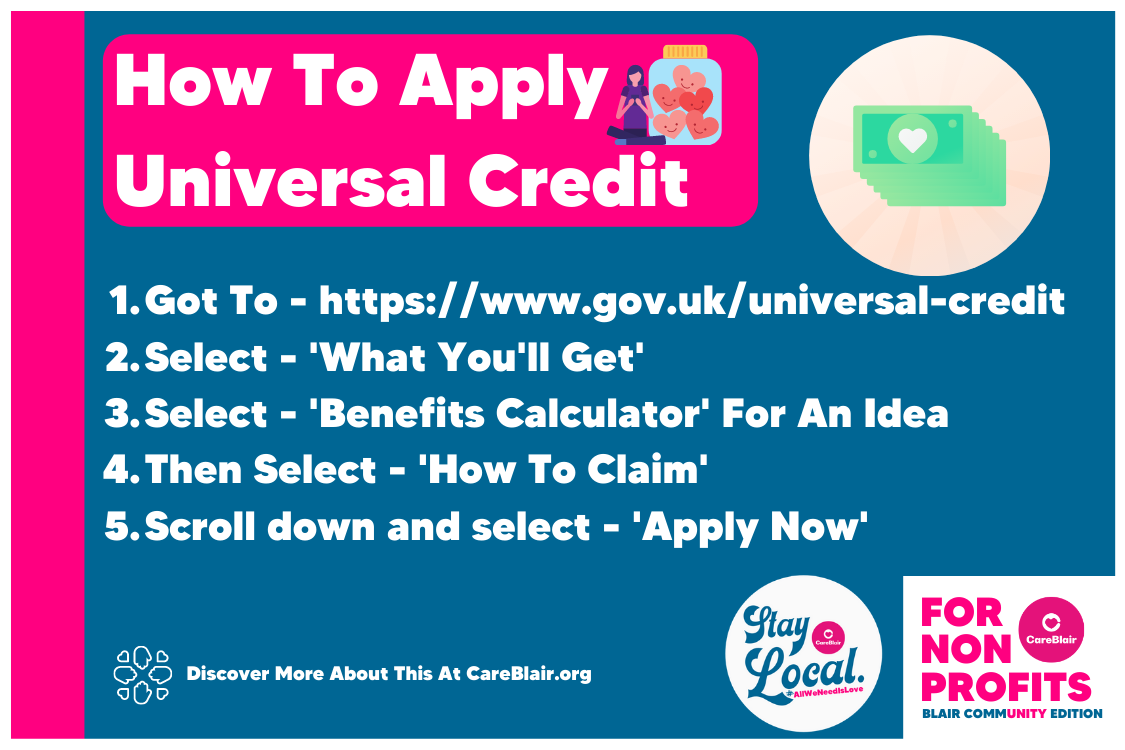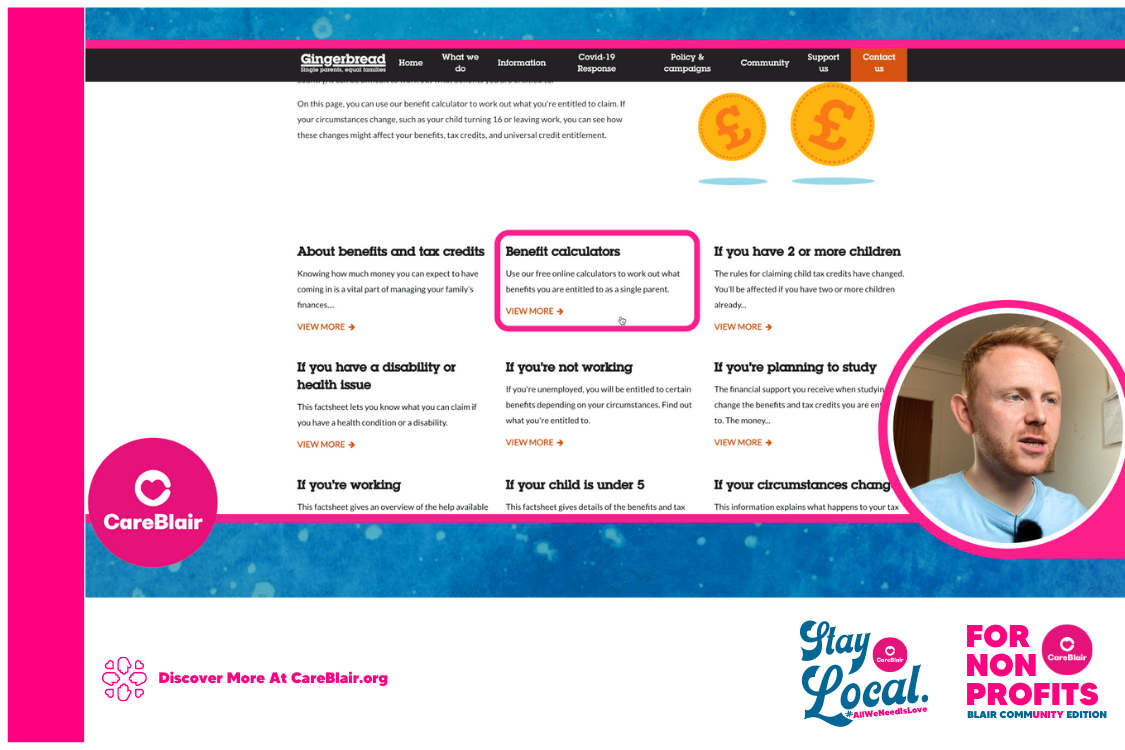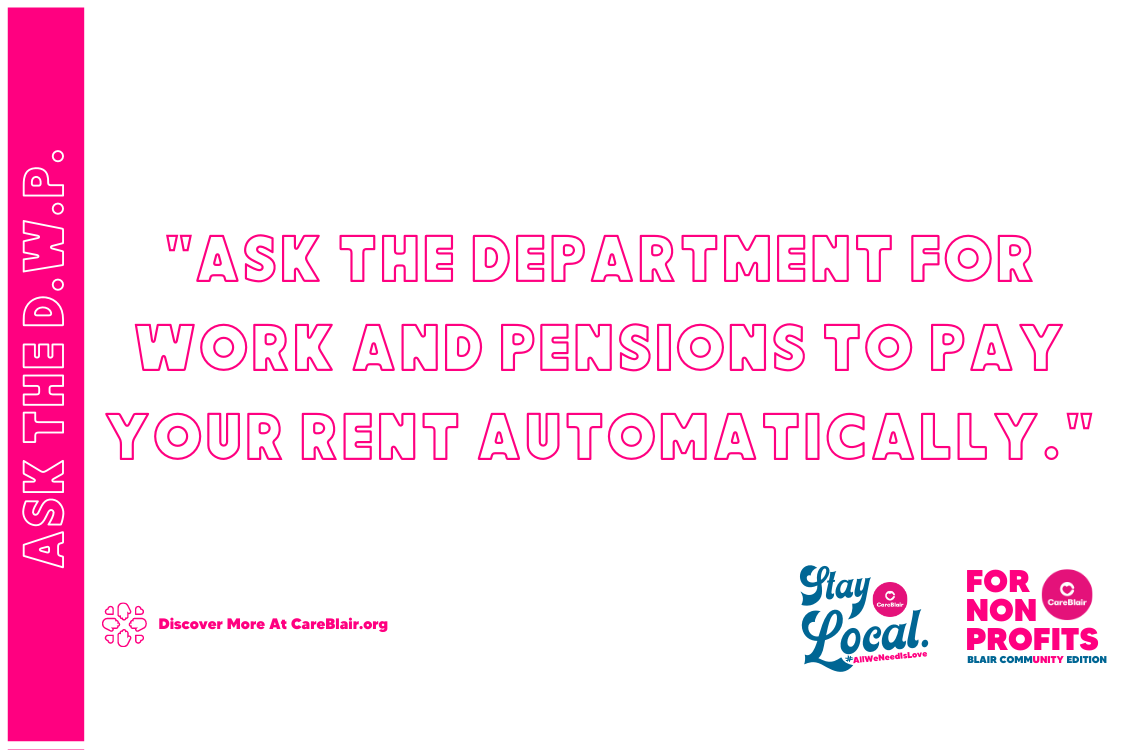What is Universal Credit? | Everything we need to know
A guide to help make your experience with Universal Credit a little different.
Discover all episodes
- Episode One – What is Universal Credit?
- Episode Two – How to use a benefits calculator to check Universal Credit entitlement
- Episode Three – How to apply for Universal Credit in 2021 | Step-by-step guide
- Episode Four – How to get paid fortnightly on Universal Credit
- Episode Five – Five practical Universal Credit tips with Perth Citizens Advice ft. Fraser Millar
- Episode Six – How to create a monthly household budget on Universal Credit
- Episode Seven – Get £100 towards Universal Credit uplift with Nationwide
- Episode Eight – How to apply for warm home discount in Scotland and save £140 on your winter energy bill
J.K. Rowling once lived on government assistance
Did you know that J.K. Rowling lived on government assistance for food, housing, and health care while writing her first drafts of what became the harry potter series?
Seven years after graduating from university, Rowling saw herself as a failure.
Her marriage had failed, and she was jobless with a dependent child, but she described her failure as “liberating” and allowing her to focus on writing.
During this period, she was diagnosed with clinical depression and contemplated suicide.
Her depression inspired the characters known as Dementors, soul-sucking creatures introduced in the third book.
Rowling signed up for welfare benefits, describing her economic status as being “poor as it is possible to be in modern Britain, without being homeless.”
There is no shame in accepting help in order to get back on our feet. None at all.
So As we go through this series together, remember this quote by J.K. Rowling:
So what is Universal Credit?
If we’re unemployed, too unwell to work, disabled, a carer, or on a low income, then like thousands of people across Perthshire, we’re probably claiming benefits.
Universal Credit is a monthly payment from the government to help with our living costs.
This welfare program is currently being introduced across the UK and is due to fully complete this transition in 2023.
Universal Credit will replace six of the benefits we’re likely already receiving:
- Housing Benefit
- income-related Employment and Support Allowance (ESA)
- income-based Jobseeker’s Allowance (JSA)
- Child Tax Credit
- Working Tax Credit
- Income Support
Quick tips
Once we begin claiming Universal Credit:
- Any benefits we were previously claiming, such as the ones just mentioned, will end.
- And we won’t be able to go back to any of our previous benefits in the future – even if we’re appealing a benefits decision.
Always use an online calculator before making a Universal Credit claim.
We recommend these calculators:
- Entitledto – easy to use for individuals but would better suit non-profits looking to install their own branded calculator with help from Entitledto.
- Gingerbread – Extremely easy-to-use calculator and comes with focused support for individuals and single-parent families.
We share how to use this benefits calculator from Gingerbread in episode two of this Universal Credit video series.
How much will we be paid?
There are two types of payments.
We have standard payments which most people claiming universal credit will receive and then there is extra payments for those who are eligible for them.
Typically we should expect our standard payments to be:
- If we are single and under 25: £342.72
- Single and over 25: £409.89
- Couple both under 25: £488.59 (for both)
- Couple either over 25: 594.04 (for both)
Universal Credit compared with other benefits
The biggest differences are:
- We can get Universal Credit if we’re unemployed but also if we’re working
- If we are aged 16-17 and have limited capacity for work because of poor health, care for a disabled person, responsible for a child, or don’t have parental support, then we are eligible to apply for Universal Credit.
- If we are a student and have limited capacity for work because of poor health, entitled to Personal Independence Payment, responsible for a child, or have no parental support, we are also eligible for Universal Credit.
- We usually get one single payment each month, rather than weekly or fortnightly
- And instead of getting a separate housing benefit, our rent will usually be paid directly to US as part of our monthly Universal Credit payment
Quick tip
We can ask the Department For Work And Pensions to pay our Universal Credit twice a month OR get them to pay our housing costs straight to our landlord.
And We’ll share with you how to get this done in an upcoming video tutorial.
What if we’re a couple?
If claiming Universal Credit as a couple, you and your partner will get one payment between the 2 of you.
That payment is made up of your standard Universal Credit allowance and any extra payments that might apply to you depending on your circumstances.
Are we eligible for extra payments?
You might be able to get extra payments if you:
- look after one or more children
- work and pay for childcare
- need help with housing costs
- are disabled or have a health condition
- are a carer for a disabled person or you have a disabled child
Typically, we can expect our extra payments to be:
- First child: £281.25
- Any other eligible child: £281.25
- Disabled or severely disabled: £128.25 or £400.29
- Disability or health condition: Between £128.25 – £341.92
- Care allowance (if you provide care for at least 35 hours per week: £162.92 per month.
Do we have responsibilities?
Once we begin claiming, our local or nearest job center will contact us to arrange an appointment over the phone.
This appointment will be focused on introducing us to the program and with our new work coach.
Our work coach is a person who will be with us for the duration of our claim.
They are responsible for helping us to find and maintain a consistent level of work.
We will have various responsibilities such as carrying out various tasks related to searching for, applying for, and maintaining a job.
If you are a parent with a newborn child then your responsibilities will be slightly different.
You won’t be required to look for work until the child is older.
SHARE YOUR THOUGHTS
Got a question, a thought, or an idea that you think might help this project? Share it with us on social media or email us and we’ll do our best to get back to you.
And until next time, remember, sharing is caring.








